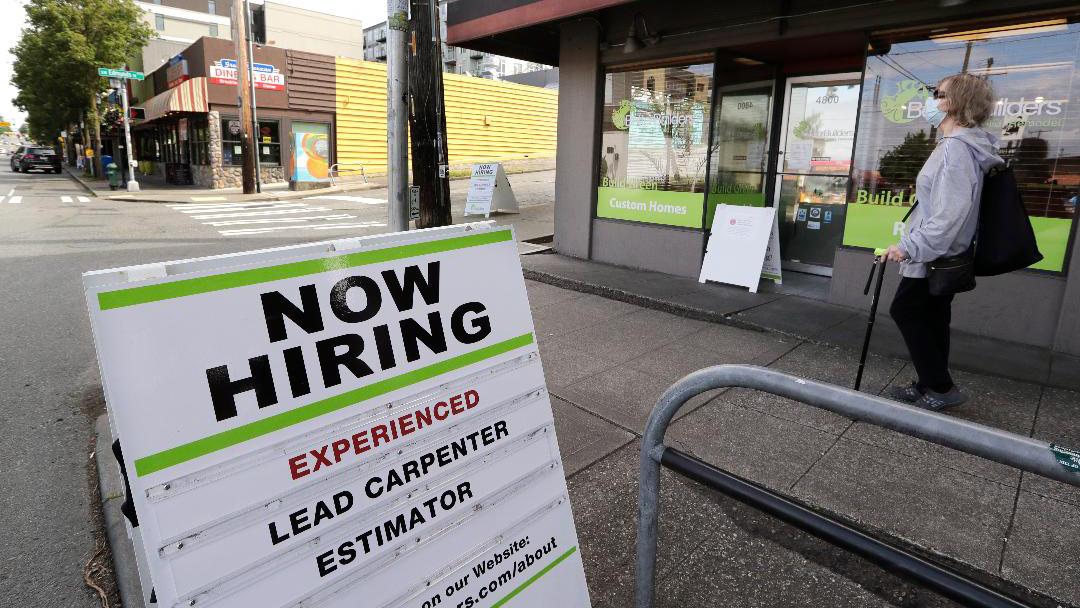Nearly half of US jobs lost to coronavirus could be gone permanently, poll finds
About half of Americans said they, or someone in household, have lost income as result of pandemic
Nearly half of Americans whose families experienced a layoff during the coronavirus pandemic think the job loss will be permanent — which could mean that roughly 10 million workers need to find a new employer.
That's according to new findings from an Associated Press-NORC Center for Public Affairs Research poll, which shows that 47 percent of households with a job loss think it's permanent or probably not coming back. Comparatively, in April 78 percent of households with a job loss thought it would be temporary.
CALCULATE HOW MUCH MONEY YOU'D RECEIVE FROM THE SECOND STIMULUS CHECK HERE
About half of Americans said they, or someone in their household, have lost income as a result of the pandemic, which dragged the nation into the worst economic downturn in decades. About 27 percent said someone has been laid off, while 33 percent have seen their hours reduced. Twenty-nine percent of those said they'd had wages or salaries reduced, and 24 percent had taken unpaid time off.
The resurgence of COVID-19 infections and new shutdown measures in several U.S. states, including Florida and California, have raised fears the labor market's recovery is stalling after solid — and record-shattering — job growth in May and June. Last week, the number of Americans filing for unemployment benefits rose for the first time in 16 weeks, while the number of confirmed COVID-19 cases in the country surged past 4 million.
EXTRA $600 IN UNEMPLOYMENT BENEFITS ENDS AS MILLIONS OF AMERICANS REMAIN OUT OF WORK
The renewed threat of another round of layoffs is emerging just as the extra $600 a week in unemployment benefits, part of the $2.2 trillion CARES Act passed in March, is expiring.
About nine in 10 Democrats said they prioritize stopping the virus over the economy, while Republicans were more evenly split: About 46 percent said the country should focus on slowing the spread, while 53 percent said the economy is the bigger priority, according to the poll of 1,057 adults conducted between July 16-20.
Congress is negotiating another round of aid for American workers and businesses. On Monday, Senate Majority Leader Mitch McConnell unveiled Republicans' proposal, the HEALS Act, which is estimated to cost $1 trillion.
WHAT HAPPENS TO YOUR UNEMPLOYMENT BENEFITS IF YOU REFUSE TO GO BACK TO WORK?
The framework calls for the extension — but substantial reduction — of just-expired expanded unemployment benefits to $200 per week instead of $600, a fresh round of $1,200 stimulus check to American adults earning less than $75,000 in August and tens of billions of dollars in aid to schools and universities.
If the virus outbreak intensifies, forcing businesses to shut down again, economists have warned the consequences could be dire.
“I think a second wave would really undermine public confidence and might make for a significantly longer recovery and weaker recovery,” Federal Reserve Chairman Jerome Powell said at the end of May.




















